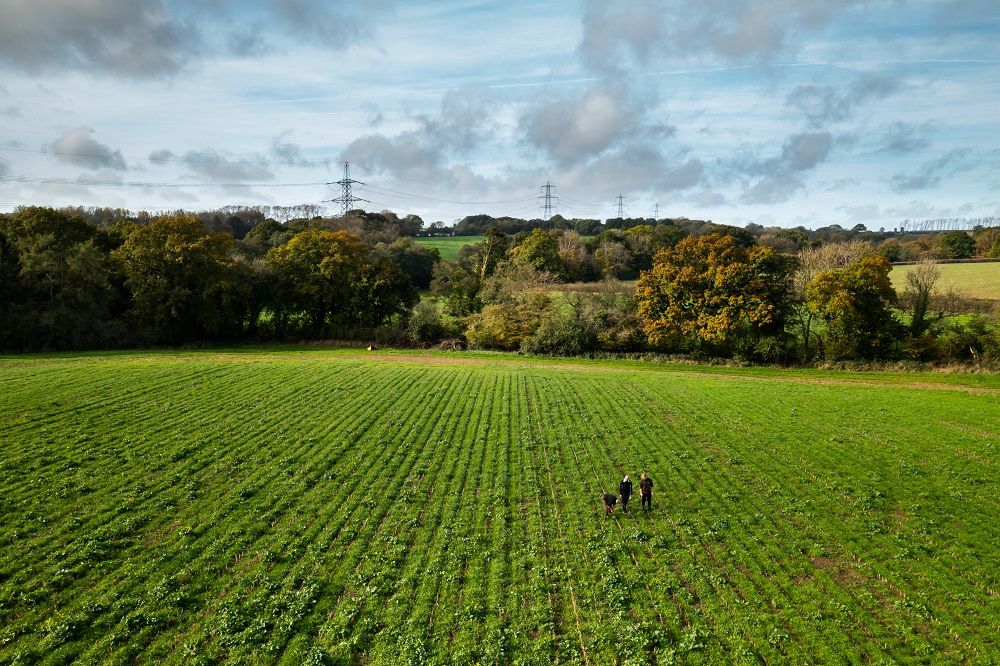We work with local farmers and land managers to protect our precious rivers and streams from cover crops to rainwater harvesting.
Removing harmful chemicals at the source means we don't have to use extra chemicals to remove them at the water treatment works. Farmers and landowners also benefit by losing less of these substances to waste – saving money and time.
From time to time, we run events and workshops with our farming community on various topics - from precision farming to rainwater harvesting and cover crops to sustainable maize management.
All events are advertised on our Eventbrite farm event hub(opens in a new tab), with presentations and other materials shared here afterwards.
Where possible, we offer BASIS and NRoSO points for attendance.
Find out about our previous farming events and workshops.

Wednesday, 21 February 2024 – Marden, Kent
More than a dozen farmers joined us at our finance workshop which delved into the changing economics of farming, the need to diversify and how farmers could successfully undertake any transition.
Experts from AHDB and BTF Partnership provided business planning advice and a Kent based farmer detailed the journey he and his family have been on to successfully diversify his farm over the years.
Breakout discussions offered farmers the chance to talk directly with the experts as well as provide us with valuable information to help us shape the grants and support we will offer farmers in the future.
Our current Capital Grants Scheme can provide up to £25,000 for on-farm improvements and other initiatives that help improve river and groundwater quality.
Click here to view or download the slides presented on the day.
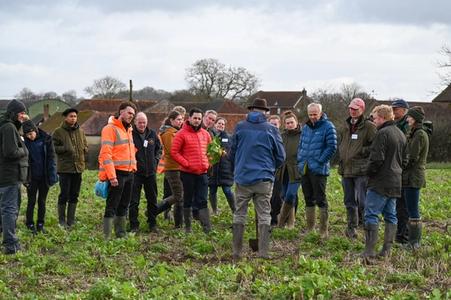
Tuesday, 6 February 2024 – Crondall, Hampshire
We teamed up with the Farming and Wildlife Advisory Group to help provide information for farmers and land managers on the benefits of cover and companion cropping at Clare Park Farm near Farnham.
South East Water and Affinity Water have been working collaboratively across the Loddon and Boxalls Lane catchments, undertaking various on-farm trials in recent years looking at how to maximise efficiencies and reduce losses of pesticide and nitrates to water.
Experts from FWAG, together with catchment advisors from South East Water and Affinity Water, explained the results of cover crop and companion crop trials and answered questions from local farmers and land managers, who were able to see first-hand the approach to cover and companion crops at Clare Park Farm.
We offer grants of up to £25,000 through our Capital Grant Scheme for on-farm improvements and other initiatives that help improve river and groundwater quality.
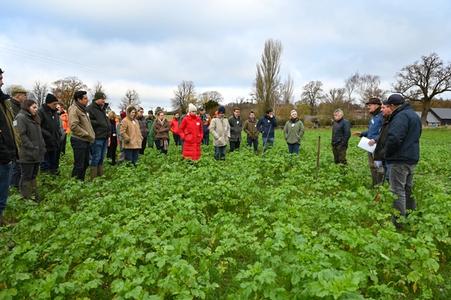
Tuesday 28 November 2023 – Woodgarston, Hampshire
More than 30 farmers and land managers joined us at Blandy’s Farm on the Malshanger Estate near Basingstoke to hear firsthand how cover cropping and managing soil microbiology can benefit crops, soil health and water quality.
Experts from SoilBioLab, Farming Wildlife and Advisory Group (FWAG), Catchment Sensitive Farming (CSF) and South East Water provided practical information and advice born out of evidence-based research, which attendees could take away and implement on their land.
Led by local farmers, delegates were also given a tour of the Malshanger Estate, where various trials are being undertaken in partnership with FWAG and South East Water.
We offer grants of up to £25,000 through our Capital Grant Scheme for on-farm improvements and other initiatives that help improve river and groundwater quality.
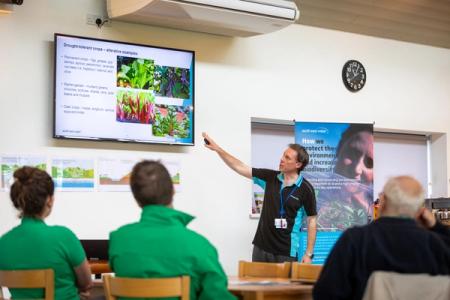
Wednesday 8 November 2023 - Marden, Kent
In partnership with representatives from FWAG, Forestry Commission, and Natural England, we hosted a workshop providing local farmers witha wealth of information about making their land more resilient to drought and water scarcity.
Al Stewart and Graham Earl of South East Water spoke about the impact of drought within the area, water quality and quantity in the region and the catchment management programme, which includes our Capital Grants Scheme (CGS).
Paul Cobb (FWAG)(opens in a new tab) shared the benefits to biodiversity through drought-resilient farming, the impacts of drought on wildlife and possible practices to consider, such as land sparing and land sharing.
Alex Cooke and Emma Bramley (Forestry Commission)(opens in a new tab) spoke about the benefits of trees in building the resilience of farmlands and the value of Agroforestry, while Olivia Morton (Natural England)(opens in a new tab) ended the event by providing an overview of the protection that trees can provide and the services that Natural England offers in partnership with others.
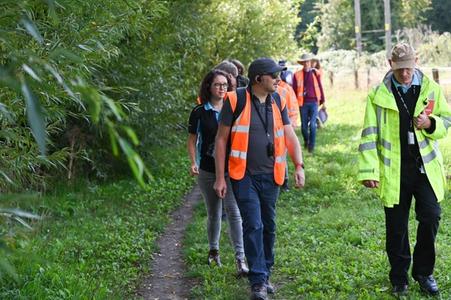
Thursday 29 March 2023 - Bray, Berkshire
We gave local farmers, greenkeepers and other land managers a behind-the-scenes tour of our Bray Keleher Water Treatment Works to show them what it takes to transform up to 68 million litres of water daily from the River Thames into clean drinking water.
Catchment Advisor Mark Slater was on hand to explain which pesticides and nutrients are picked up by our river and borehole sampling and the impact local land use can have on the water treatment process required locally – as well as the range of free advice and grant funding we offer for sustainable land management practices.
John Gadsby from ADAS provided a more detailed look at a range of best practices for reducing environmental impacts, from rainwater harvesting to integrated pest management and maximising the health of your soils.
Alex Cruikshank from BBOWT explained to farmers what measures they can take on farm to maximise biodiversity and protect water sources; such as planting hedgerows, cover crops and field margins.
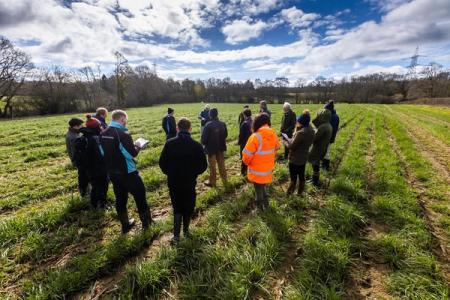
Tuesday 14 March 2023 - Horam, East Sussex
A dozen local farmers and growers joined us and Catchment Sensitive Farming Advisers to see an example of sustainable maize management.
Dairy farmer Ben Pike has trialled both inter-row sowing - where grass is sown between maize at the 4-6 leaf stage - and post-harvest grass - sown after harvest on his East Sussex farm.
This practice reduces the sediment, nutrient, and pesticide runoff into local rivers, making the water easier to transform into clean drinking water and reducing soil erosion and nutrient runoff.
We offer £160 per hectare for inter-row sowing. Find out more, and watch a video review of both techniques by Ben Pike on our dedicated maize webpage.
Find out more
If you'd like to know more about past or future events or suggest topics you'd like to hear about, please don't hesitate to get in touch.
Please let us know which town or village you live or work in so we can direct your message to your local advisor.
